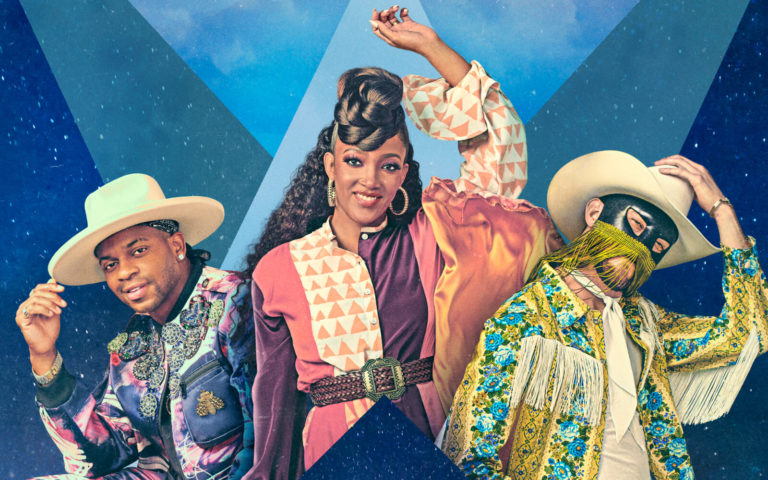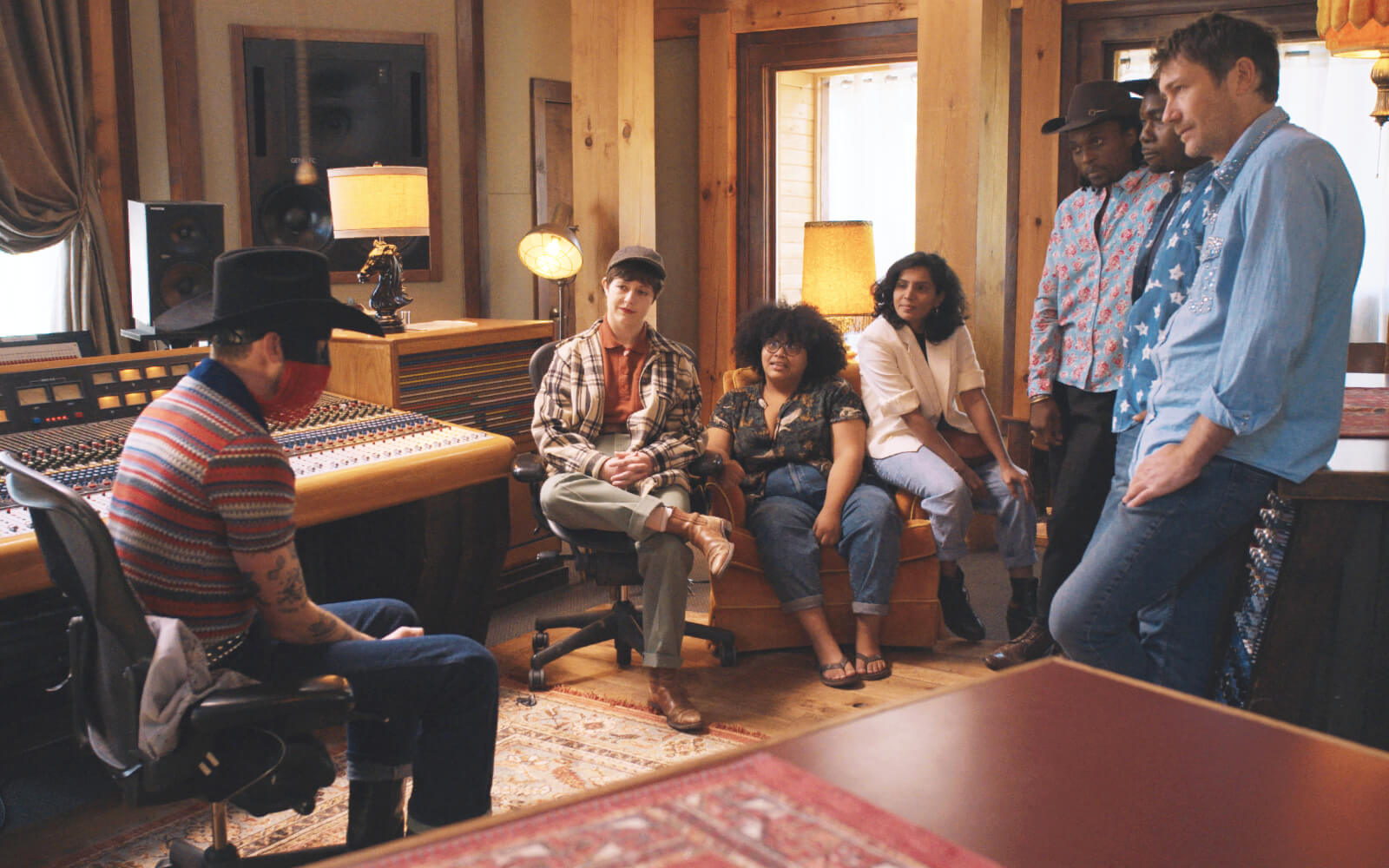By Maggie McPhee
Star Ilinca Manolache on how the black comedy defies conventions in content and form.

Say what you want about country music, but, at the core of the genre, it is sure of itself. It stands on the shoulders of giants in order to see further with each mega hit. Nashville country, in particular, is excellent at this, given its sound was defined in the heydey of American radio in the 1950s and has steadfastly built its empire at the crowd-pleasing intersection of honky tonk and pop.
Reality television, too, exudes a learned confidence. Perhaps even more boldly than country. It took them a single season of The Real World to understand how to be real on television and after that, over the course of the past three decades, the genre has matured at an exponential pace — accelerated only by the rise of streaming platforms, which flocked to the format for its binge-able nature and cheap production costs.
With that in mind, Apple TV+ has spared no expenses with their new country music reality television competition, My Kind of Country. The show — produced by Kacey Musgraves and Reese Witherspoon, and featuring Jimmie Allen, Orville Peck, Mickey Guyton as the three talent scouts/judges — bills itself as the first country music reality show of its kind, one dedicated to traversing the world for new and diverse voices in country music. And to be sure, they’re not wrong: the white guy (Orville Peck) is in the minority on the panel of experts, as Allen points out during the pre-release press conference conducted over Zoom.
Both Allen and Guyton have broken innumerable glass ceilings as two Black country artists with a massive list of hits and accolades under their belts; and the artists selected by the scouts all bring their own approach to country music that may otherwise not be represented in the Nashville sound and scene.
Throughout the show, Peck, Allen and Guyton are close to the action. From their vantage point, they get to know the artists on an intimate level, the kind of relationships built after an intense, pressure-cooker schedule of shooting and production. And the artists are all talented and wonderful in their own ways. My Kind of Country brings together disparate musicians who would have otherwise never met and it’s clear this is a golden opportunity for all of them, a chance to get in front of a massive audience and work with industry-standard talents to help them elevate their game.
“I don’t want to change country music,” says Allen during the press conference. “The thing you can change is how country music is viewed.”
“I think fans of country music aren’t given enough credit,” continues Peck. “I think they want that diversity and they want those new stories, you know?”
“They want good music, no matter who it’s from,” agrees Guyton.

Orville Peck, Ismay, Micaela Kleinsmith, Alisha Pais and The Congo Cowboys in My Kind of Country on Apple TV+.
Shimmering with a polished Nashville sheen, the 12 artists/contestants are introduced on somewhat of a surface level but that’s what the Nashville monolith is often all about. The show’s intentions are in the right place, and there’s no doubt the artists themselves have plenty to offer to complicate the traditional country music identity, but My Kind of Country is not structured to get overly complicated and — for better or worse — puts everyone in the same arena.
“We have people from all over the world,” says Peck. “And we’re all sort of uniting under one general theme of loving country music. The special thing is, I stopped thinking about, ‘Oh, this contestant is from India,’ and you just start thinking, ‘Oh, we’re all just artists here.’
“The margins disappear because we’re all sort of in the same lane.”
“I noticed by episode two that I didn’t see gender,” agrees Allen. “I didn’t see colour.”
The implication is that, once the scouts got to know the artists, the artists’ normative, social, racial, and gender identities in relation to the centre fell away; what was left was a pure, individual artistry, just the artist, free from pesky notions of critical theory. And so the show does just that, presenting the contestants as just an artist; not a Black artist, an Indian artist, a Queer artist, etc. It would be noble if not for the fact that it ignores asymmetrical power imbalances that are at the core of the Nashville country sound, and what folks relegated to the margins can do to complicate and confront that idea. It ignores the reality that there’s still a ton of work to do to strip down the power structures that govern our cultural, political, economic lives before we can leave that baggage behind and be just people with equitable access to power, resources, wealth and opportunity.
At the end of the day, My Kind of Country is a harmless reality TV show. But the star of My Kind of Country isn’t the chosen artists or even the winner of season one, it’s Nashville itself. The Nashville sound remains sure of itself by the end of the show: sure that its identity is uncomplicated; sure that it can bring marginalized voices into the centre and subsume them, thus heading off any rebellion at the pass; sure that it can continue to produce commercially viable voices regardless of what they have to say, because at the end, the Nashville sound only wants to say so much.
By Maggie McPhee
Star Ilinca Manolache on how the black comedy defies conventions in content and form.
By Liam Dawe
Hot picks and previews — we got the lowdown from CUFF curator Cameron Macgowan.
By Sierra Riley'
With love from the Wasteland...